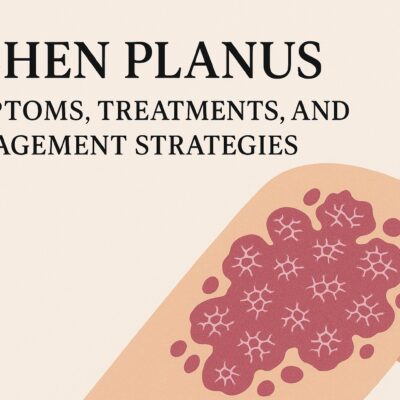Discover in-depth insights about Steven Johnson’s Syndrome, including its causes, symptoms, and treatment options. Gain valuable knowledge on this rare but serious condition.
Introduction
Steven Johnson’s Syndrome is a rare but potentially life-threatening skin disorder that demands our attention. Understanding its causes, symptoms, and treatment options is crucial for both prevention and effective management. In this comprehensive guide, we delve into the intricacies of this syndrome.
Steven Johnson’s Syndrome: Understanding its Causes, Symptoms, and Treatment
Steven Johnson’s Syndrome, abbreviated as SJS, is a severe skin reaction characterized by the detachment of the epidermis from the dermis. This condition typically arises as a reaction to medication or infection. It’s imperative to grasp the underlying causes, recognize the symptoms, and explore available treatment modalities.
The Origins of Steven Johnson’s Syndrome
Medication-Induced Reactions
The primary cause of SJS is often attributed to adverse reactions to certain medications. These can range from antibiotics to anticonvulsants and non-steroidal anti-inflammatory drugs (NSAIDs). It’s crucial to note that not everyone who takes these medications will develop SJS, as genetic predispositions play a role.
Over-the-Counter Pain Relievers
Non-Steroidal Anti-Inflammatory Drugs (NSAIDs)
NSAIDs like Ibuprofen, Naproxen, and Aspirin, commonly used to alleviate pain and inflammation, have been associated with SJS in rare instances. It’s crucial to follow recommended dosages and consult a healthcare professional if you experience any adverse reactions.
Anticonvulsant Medications
Carbamazepine
Used to treat epilepsy and certain mood disorders, Carbamazepine carries a known risk of causing Steven Johnson Syndrome. Individuals prescribed this medication should be closely monitored for any signs of adverse reactions.
Lamotrigine
While highly effective in treating epilepsy, Lamotrigine has also been linked to SJS. Careful dosage adjustments and vigilant monitoring are imperative for those taking this medication.
Antibiotics
Sulfonamides
This class of antibiotics, which includes drugs like Bactrim and Septra, has been associated with SJS. It’s crucial to inform your healthcare provider of any known allergies or sensitivities to sulfonamide medications.
Penicillins
Although rare, certain penicillin-based antibiotics have been reported to trigger SJS in susceptible individuals. If you have a history of allergies to penicillin, ensure your healthcare provider is aware.
Allopurinol
Used to manage gout, Allopurinol has been linked to Steven Johnson Syndrome. If you’re prescribed this medication, it’s important to be vigilant for any unusual skin reactions and seek immediate medical attention if they occur.
Antiretroviral Drugs
Nevirapine
An antiretroviral medication used in the treatment of HIV, Nevirapine has been associated with SJS. Close monitoring and reporting of any unusual symptoms are crucial for individuals on this drug.
Infectious Triggers
In some cases, SJS can be triggered by infections, most notably viral. Conditions such as herpes, HIV, and hepatitis have been associated with the onset of Steven Johnson’s Syndrome. Understanding the link between infections and SJS is vital for early intervention.
Recognizing the Symptoms
Identifying SJS in its early stages is pivotal for prompt medical attention. The symptoms may initially resemble those of common illnesses, making it crucial to be vigilant. Look out for:
- Fever and Malaise
- Painful, Red Rashes
- Blisters on the Skin and Mucous Membranes
- Skin Peeling or Shedding
Seeking Medical Help
Upon noticing any of these symptoms, seeking immediate medical attention is paramount. Early diagnosis and intervention significantly improve outcomes for individuals affected by SJS.
Treatment Options for Steven Johnson’s Syndrome
Hospitalization and Supportive Care
Patients diagnosed with SJS require immediate hospitalization in specialized burn units. Here, they receive round-the-clock care, including pain management, wound care, and intravenous fluids to maintain hydration.
Discontinuation of Causative Agents
Identifying and discontinuing the medication or addressing the underlying infection that triggered SJS is fundamental. This halts the progression of the syndrome and prevents further damage.
Immunomodulatory Therapies
In severe cases, immunomodulatory therapies may be employed to suppress the immune system’s response and mitigate the damage caused by SJS.
Frequently Asked Questions
What is the main cause of Steven Johnson’s Syndrome?
Steven Johnson’s Syndrome is primarily caused by adverse reactions to medications, although infections can also be a triggering factor.
Is Steven Johnson’s Syndrome contagious?
No, SJS is not contagious. It is an adverse reaction that occurs in certain individuals due to specific triggers.
Can SJS be prevented?
While it’s not always possible to predict who may develop SJS, avoiding known triggers, especially specific medications, can reduce the risk.
Are there any long-term effects of Steven Johnson’s Syndrome?
Yes, individuals who have experienced SJS may have lasting effects, including skin discoloration and increased sensitivity to sunlight.
Can SJS recur after the initial episode?
Yes, although rare, there have been cases of SJS recurring in individuals who were previously affected.
Is there ongoing research on Steven Johnson’s Syndrome?
Yes, ongoing research aims to deepen our understanding of SJS, its causes, and potential treatment options.
Conclusion
In conclusion, familiarizing oneself with Steven Johnson’s Syndrome is essential for both prevention and early intervention. Understanding the causes, recognizing symptoms, and knowing the available treatments can make a significant difference in the outcome for individuals affected by this condition. Stay informed, stay vigilant, and seek immediate medical attention if you suspect SJS.






No Comment! Be the first one.